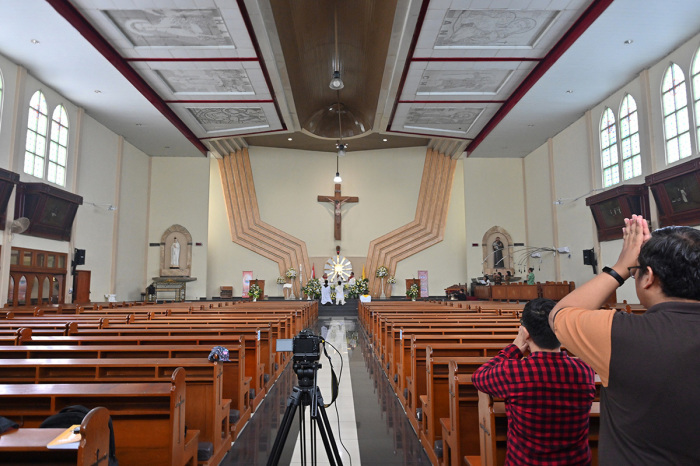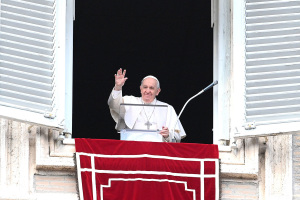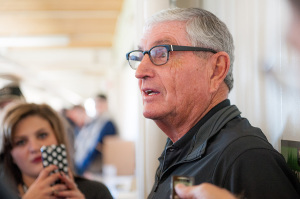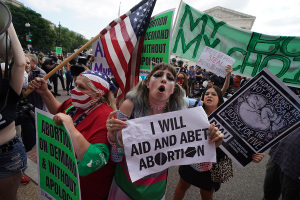Indonesia: Christians react to gov't officials joining effort to block construction of church in Java

SURABAYA, Indonesia — Two local officials in Indonesia joined Islamist organizations’ call to block construction of a Christian church, triggering objections nationwide in the past two months, according to published reports.
In western Java Island’s Banten Province, Cilegon Mayor Heldy Agustian and his deputy, Sanuji Pentamarta, were among those who signed a petition to ban construction of a church building in Cilegon’s Grogol District in early September, sparking complaints of government interference in religious freedom, according to media outlet Detik.com.
“This incident harms the 1945 Constitution, which guarantees equality of every citizen to adhere to a certain religion and to worship freely in accordance to their own religions,” the Rev. Jerry Sumampow, spokesman for the Communion of Churches in Indonesia (Persekutuan Gereja-gereja di Indonesia, or PGI), said in a Sept. 9 statement.
The two Cilegon officials signed the petition opposing construction of Maranatha Church after a demonstration against it in early September that included members of the Cilegon chapter of the Indonesian Ulema Council (Majelis Ulama Indonesia, or MUI), the country’s top body of Islamic scholars. Reportedly leading the demonstration was a group called the Cilegon City Local Wisdom Defender Committee, which along with the MUI, other Islamist groups and the two city officials then signed a petition opposing the construction.
The proposed church building was to serve a congregation belonging to the Protestant Christian Batak Church (Huria Kristen Batak Protestant, or HKBP).
Abd Rohim Ghazali, executive director of the Jakarta-based Maarif Institute for Culture and Humanity, said in a Sept. 9 press statement that the involvement of the Cilegon mayor and deputy against the church violates Indonesia’s constitutional rights of religion and belief.
The following day, representatives of the Wahid Foundation, established in 2004 to promote tolerance and non-violence, issued a statement saying government officials should abide by the constitution and not succumb to the pressure of the masses.
Rights advocates say requirements for obtaining permission to build houses of worship in Indonesia are onerous and hamper the establishment of such buildings for Christians and other faiths. When Indonesia’s minister of Religious Affairs, Hajj Yaqut Cholil Qoumas, invited the conflicted parties for discussion, Mayor Agustian said the church met construction permit requirements at lower administrative levels, but that the process had not reached the municipal level.
Such processes typically have to pass through four levels of bureaucracy before reaching the municipal level. Besides the opposition that the church faces, most applications for church construction permits in Indonesia take decades to process without support from high-ranking officials.
Addressing HKBP leaders, Qoumas said he would do everything in his power to ensure that the religious freedom guarantees in the Indonesian constitution were upheld in Cilegon. Appearing to agree with Mayor Agustian, however, Quomas suggested that “the real problem is not at the base but the hardline [lower-level] local administration,” as quoted by Asia News.
Historical influences
The province’s port city of Banten anchored the Banten Sultanate, an Islamist trading power of the 16th and mid-17th centuries, and persecution of Muslims by Dutch colonists centuries later contributes to today’s opposition to non-Muslim faiths, Christians in the region believe.
Dutch colonists of the 19th century prohibited Muslim calls to prayer, forced them to pay tribute and publicly hung rebel clerics, according to the secretary of the Cilegon chapter of the Religious Harmony Forum (FKUB), Agus Surahmat. Such oppression has fostered sentiment against adherents of other faiths that has been passed down from generation to generation, Surahmat told outlet SuaraBanten.id.
“People understand that those [Dutch] who hung them were non-Muslims,” he told SuaraBanten.id.
In addition to such history, Christians believe past pacts influence local Muslims’ mindset. When Indonesia established its largest steel mill, Krakatau Steel Co., Ltd., in Cilegon in cooperation with the former Soviet Union in 1962, it was accompanied by an agreement to ban Christian houses of worship, according to local news reports.
Cilegon has no non-Muslim house of worship, according to Wawan Wahyudin, president of the Banten-based Sultan Maulana Hasanuddin Islamic State University. Official state data from 2019 recorded 382 mosques and 287 Muslim prayer rooms in Cilegon, with no record of any houses of worship of other faiths.
In a city whose population is now near 435,000, the number of Protestant Christians was recorded in 2019 as 6,740, in addition to 1,743 Catholics, 215 Hindus and 215 Buddhists.
Indonesia ranked 28th on the Christian support organization Open Doors’ 2022 World Watch List of the 50 countries where it's most difficult to be a Christian. Indonesian society has adopted a more conservative Islamic character, and churches involved in evangelistic outreach are at risk of being targeted by Islamic extremist groups, according to Open Doors’ WWL report.
“There are certain hotspots, such as West Java or Aceh, where extremist groups are strong and exert a strong influence on society and politics,” the report states. “In some regions, church groups face difficulties getting permission to build churches. Even if they manage to fulfill all legal requirements (including winning court cases), the local authorities still often ignore them.”
Morning Star News is the only independent news service focusing exclusively on the persecution of Christians. The nonprofit's mission is to provide complete, reliable, even-handed news in order to empower those in the free world to help persecuted Christians, and to encourage persecuted Christians by informing them that they are not alone in their suffering.





























